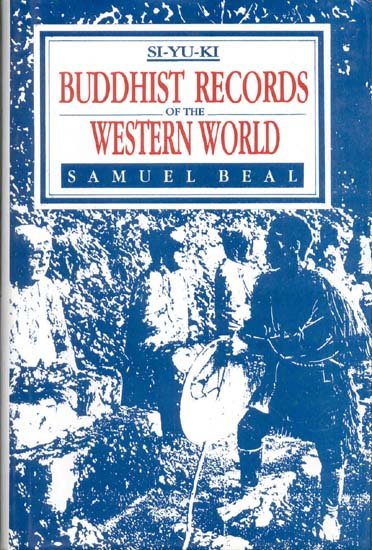Buddhist records of the Western world (Xuanzang)
by Samuel Beal | 1884 | 224,928 words | ISBN-10: 8120811070
This is the English translation of the travel records of Xuanzang (or, Hiuen Tsiang): a Chinese Buddhist monk who traveled to India during the seventh century. This book recounts his documents his visit to India and neighboring countries, and reflects the condition of those countries during his time, including temples, culture, traditions and fest...
Chapter 3 - Country of ’An-ta-lo-po (Andarab)
This is the old land of the Tu-ho-lo country.[1] It is about 3000 li round; the capital is 14 or 15 li round. They have no chief ruler; it is dependent on the Turks (Tuh-kiueh).[2] Mountains and hills follow in chains, with valleys intersecting them. The arable land is very contracted. The climate is very severe. The wind and the snow are intensely cold and violent; yet the country is regularly cultivated and productive: it is suitable also for flowers and fruits. The men are naturally fierce and violent. The common people are unrestrained in their ways, and know neither wrong nor right. They do not care about learning, and give themselves only to the worship of spirits. Few of them believe in the religion of Buddha. There are three saṅghārāmas and some tens of priests. They follow the teaching of the Mahāsāṅghika (Ta-chong-pu) school. There is one stūpa built by Aśoka-rāja.
Going north-west from this we enter a valley, skirt along a mountain pass, traverse several little towns, and after going about 400 li we arrive at K'woh-si-to.
Footnotes and references:
[1]:
That is, of the Tokhāri people. See Book i., n. 121.
[2]:
That is, on the Turkish tribe from the borders of China that had overrun this district (see note, loc. cit.)
